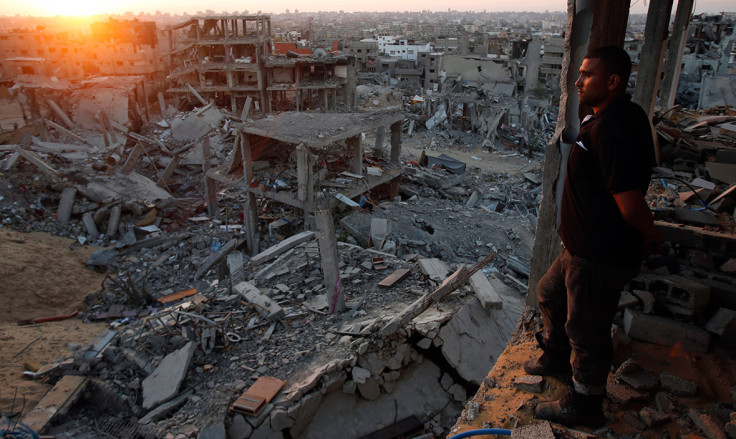Gaza Crisis: Israel and Palestine Agree on UN Reconstruction Deal

Israel and Palestine have agreed on a UN-brokered deal to import construction material to Gaza, according to a UN envoy.
The agreement will apparently bypass Islamist militant group Hamas, which has ruled in the occupied Palestinian territory since 2007, in the double attempt to boost the reconstruction effort after the latest Israeli offensive and stop materials entering the Gaza Strip being diverted from their civilian purpose.
The UN will be in charge of monitoring the process, which involves the private sector in Gaza and gives a lead role to the Palestinian Authority (PA) of Mahmoud Abbas, according to UN Middle East envoy Robert Serry.
The conflict between Israel and Hamas, which left more than 2,100 Palestinians and 72 Israelis dead, ended with an Egypt-brokered ceasefire that promised to open the border crossings into Israel.
But, after more than two weeks, Israeli authorities have not yet fulfilled the truce conditions. Gaza has been left in ruins with some 11,000 homes destroyed and more than 50,000 buildings damaged, according to PA figures.
In a recent study, Palestinians estimated reconstruction work will cost $7.8bn (£4.8bn), two-and-half times Gaza's gross domestic product.
Serry said the destruction in Gaza was "truly shocking" and called the swift deal on reconstruction a signal of hope to the people of Gaza. He warned Gaza could implode should international actors ignore the dynamics in the Mediterranean enclave.
Israel have opposed the passage of materials into the Hamas-run territory for fear they would be siphoned off by Hamas' military wing, the al-Qassam brigades, and used for military purposes.
The network of Hamas tunnels inside Gaza and into Israel, which was cited as one of the reasons behind Operation Protective Edge, were allegedly built using concrete and other material allowed into Gaza for civilian uses, according to Israel.
Moshe Ya'alon, Israel's Defence Minister, warned that if the materials were transferred to building tunnels, the movement of materials would stop immediately.
Earlier in September, senior Hamas leader Mousa Abu Marzook said in a telephone interview the militant group would have to backpedal on its ban on direct talks with Israel because the ceasefire had not yielded change on reconstruction.
"As we negotiate with weapons, we can negotiate with words," Marzook said. "The issues that were sort of taboo policies become on the agenda."
© Copyright IBTimes 2025. All rights reserved.






















